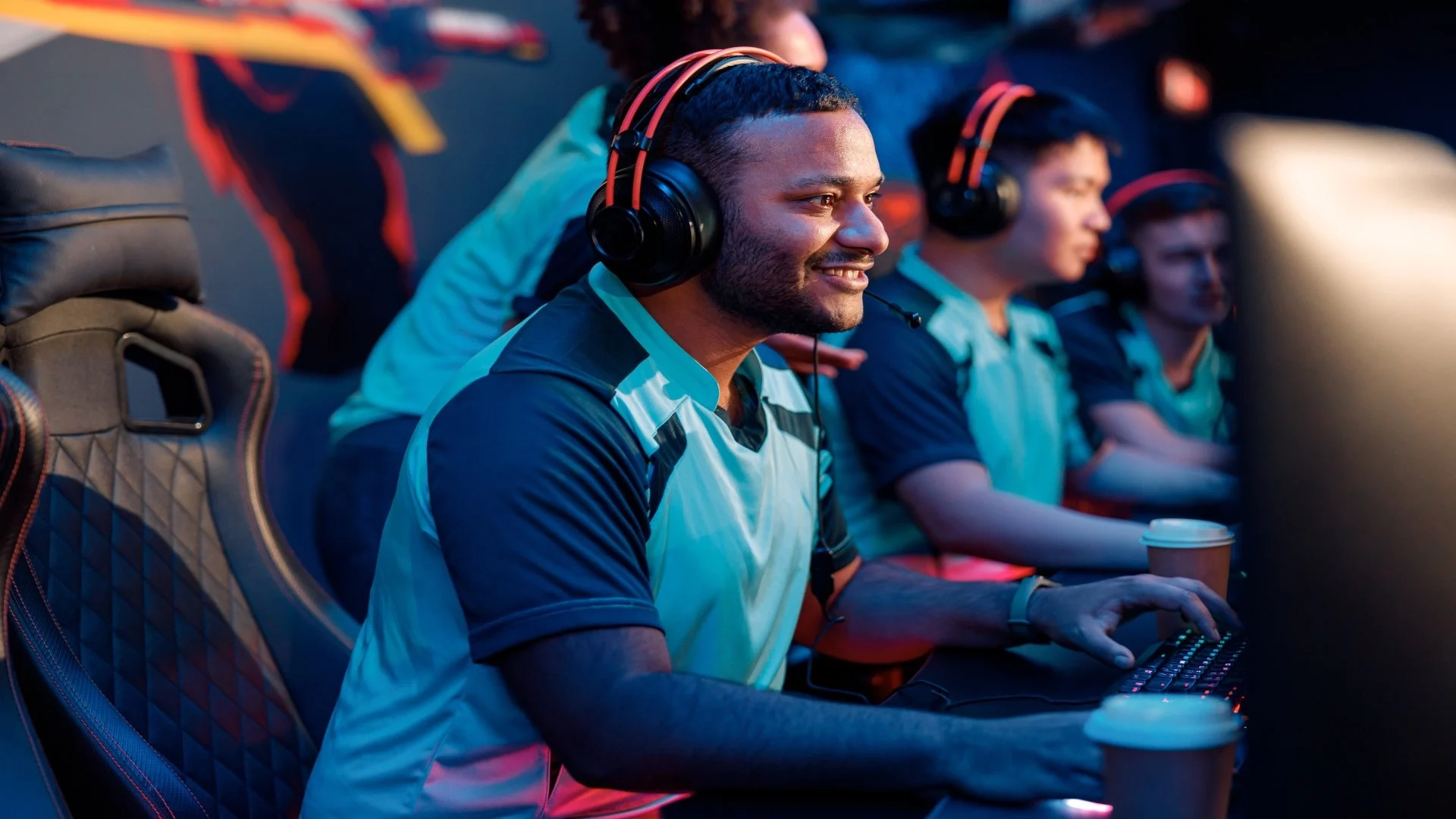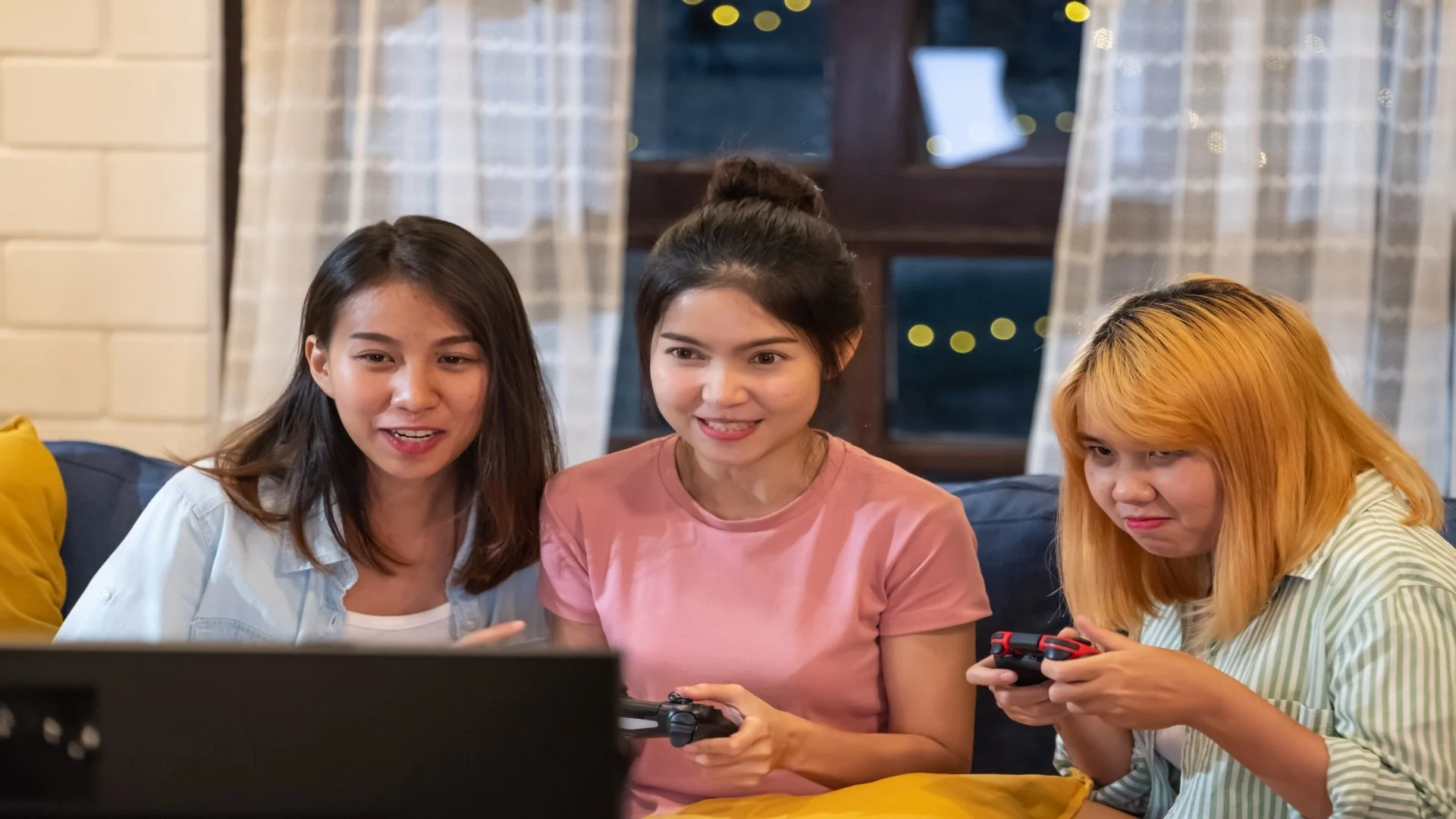Mental Health
Is Fortnite Addictive? The Psychology Behind Battle Royale Gaming Compulsion

Discover the psychology behind Fortnite addiction, exploring how battle royale gaming can create powerful compulsions, impact behavior, and affect mental health.
Is Fortnite addictive? For many, what begins as a fun way to unwind can slowly turn into hours of play that feel impossible to control. This constant pull can affect responsibilities, strain relationships, and leave you feeling frustrated or guilty.
The game’s design—filled with rewards and endless competition—can make it difficult to step away, turning entertainment into compulsion. At The Edge Treatment Center, we understand how overwhelming this can feel. We’re here to help you or your loved one find balance, explore the psychology behind gaming compulsion, and take steps toward a healthier future.
What Experts Say: Gaming Disorder Vs. Hobby

When people ask, “Is Fortnite addictive?” they are often worried that what seems like a harmless game has become something more. Experts agree that most players enjoy Fortnite without long-term harm. However, a small but significant number experience patterns that resemble addiction.
The World Health Organization recognizes gaming disorder in the International Classification of Diseases (ICD-11). This means that excessive gaming—when it interferes with daily life, relationships, and responsibilities—can be considered a diagnosable condition.
It’s also important to understand that not every intense player has a disorder. Just like someone can enjoy sports or movies passionately, many Fortnite fans devote hours to play without reaching harmful levels.
The difference lies in control. If someone cannot reduce or stop despite negative effects, that’s when concern is warranted. At The Edge Treatment Center, we help families distinguish between enthusiastic play and genuine compulsion that needs care.
How Fortnite’s Design Can Create Compulsion
Fortnite’s success isn’t an accident. The game uses a range of design features that strongly encourage players to keep coming back. These are psychological hooks that make it harder to log off:
Reward Loops: Every match offers unpredictable rewards—whether it’s a “Victory Royale,” new skins, or seasonal challenges. This taps into the same brain systems triggered by gambling wins, creating excitement that reinforces play.
Constant Updates: Unlike traditional games, Fortnite evolves weekly with fresh maps, characters, and collaborations. This sense of “fear of missing out” (FOMO) keeps players engaged so they don’t fall behind.
Social Integration: Many players feel pressure to join friends online. The social aspect makes it harder to decline invitations without feeling left out.
Microtransactions: Skins and battle passes provide instant gratification and status symbols. For some, buying items becomes as compulsive as playing.
High-Intensity Gameplay: Fast-paced matches release adrenaline, making players eager to queue up “just one more time.”
These mechanics are designed to entertain, but they can also push vulnerable players into unhealthy patterns. At The Edge Treatment Center, we recognize these triggers and help individuals develop healthier responses to them—turning awareness into action.

We’re Here To Help You Find Your Way
Would you like more information about mental health or drug addiction? Reach out today.
Signs That Fortnite Is Causing Harm
So how can you tell if gaming has crossed the line from fun into a problem? The clearest sign is impact on daily functioning. A person may still enjoy Fortnite, but if it begins to damage health, relationships, or goals, it’s no longer harmless. Warning signs include:
Loss of Control: Playing longer than planned, often late into the night.
Neglect of Responsibilities: Declining performance at work or school, forgetting chores, or skipping commitments.
Sleep Disruption: Staying up late or waking early to play, leading to fatigue.
Mood Changes: Irritability, anxiety, or sadness when unable to play.
Social Withdrawal: Spending less time with friends or family in favor of the game.
Financial Concerns: Overspending on in-game purchases or hiding costs from loved ones.
While many young people play heavily without serious harm, these red flags indicate when the balance is off. At The Edge Treatment Center, we encourage families to look not just at time spent playing but at whether gaming interferes with a person’s ability to thrive.
Risk Factors & Who’s Most Vulnerable

Not everyone is equally at risk of developing compulsive gaming habits. Research shows that certain factors increase vulnerability:
Adolescents and Young Adults: Younger players are more likely to be affected, as they are still developing impulse control and coping skills.
Existing Mental Health Conditions: Anxiety, depression, ADHD, or trauma can make individuals more likely to use gaming as a coping mechanism.
Social Isolation: When someone feels disconnected in real life, Fortnite’s social environment can feel like their only community.
Family or Environmental Stress: Conflict at home or lack of support can push individuals toward immersive gaming as an escape.
At The Edge Treatment Center, we assess not only the gaming behavior but also the underlying issues that may be fueling it. By addressing root causes, recovery becomes more sustainable and meaningful.

We’ll Lead You to New Heights
Do you have more questions about mental health or drug addiction? Reach out.
Immediate Steps Families Can Take
If Fortnite is creating conflict or distress in your household, you don’t have to wait for a crisis before taking action. There are practical steps you can try right away:
Set Clear Limits: Establish agreed-upon play times and ensure responsibilities come first.
Prioritize Sleep: Keep devices out of bedrooms at night and set “power-down” times.
Encourage Balance: Promote offline hobbies, physical activity, and family interaction.
Use Parental Tools: Platforms like PlayStation, Xbox, and Epic Games offer settings to limit playtime and spending.
Stay Calm: Avoid power struggles. Conversations work better when they’re non-judgmental and empathetic.
If you try these steps but notice continued harm—such as worsening grades, irritability, or hiding behavior—it may be time to consider professional help. That’s where we come in at The Edge Treatment Center.
When to Seek Professional Help — and What Treatment Looks Like
It’s not easy to know when gaming crosses the threshold into something requiring treatment. A good rule is this: if the game is causing significant problems despite efforts to cut back, professional support is appropriate.
At The Edge Treatment Center, we provide a compassionate, evidence-based approach to gaming-related struggles. Our process often includes:
Assessment
We begin with a thorough evaluation to understand the extent of gaming behaviors and identify any co-occurring issues, such as anxiety, depression, or substance use. This foundation helps us create a plan that fits each individual’s unique needs.
Personalized Treatment Plans
Every recovery journey is different. We design therapy plans that address both compulsive gaming and the underlying challenges contributing to it, ensuring treatment is tailored, effective, and sustainable.
Cognitive Behavioral Therapy (CBT)

Cognitive Behavioral Therapy is a core tool in our approach. It helps individuals identify unhelpful thought patterns that fuel excessive gaming and replace them with healthier coping strategies that support long-term balance.
Family Involvement
We actively involve families in the recovery process, promoting open communication, healthy boundaries, and supportive environments that strengthen progress.
Relapse Prevention
Lasting recovery requires preparation. We provide strategies and tools to handle triggers, prevent setbacks, and build resilience for a healthier future.
Gaming compulsion doesn’t have to define your life—or your loved one’s. With the right support, it’s possible to regain balance and restore well-being.

We’re Here To Help You Find Your Way
Do you need advice about mental health or drug addiction? Reach out today.
Fortnite Taking Over Your Life? We Can Help
Fortnite can be fun, but when it begins to feel impossible to control, it may be time to seek support. If gaming is affecting your health, relationships, or responsibilities, remember—you don’t have to face it alone. At The Edge Treatment Center, we specialize in helping individuals and families understand compulsive behaviors and find lasting recovery.
With compassionate care and personalized treatment, we’ll help you or your loved one regain balance and build a healthier future. If Fortnite has started to take over, reach out today—we’re here to guide you toward healing.
Is Fortnite Actually Addictive?
Fortnite is highly engaging, and while most players enjoy it without harm, a small number develop problematic patterns. For these individuals, gaming may meet the clinical criteria for gaming disorder, where play disrupts health, relationships, and daily responsibilities in significant ways.
How Do I Know if My Child Is Addicted to Fortnite?
Warning signs include loss of control over playtime, declining school performance, withdrawal from activities, poor self-care, and irritability when not playing. The key measure is impact—if gaming consistently disrupts responsibilities, social life, or well-being, it may signal a deeper problem.
Can Fortnite Cause Aggression or Other Mental Health Problems?
Fortnite itself doesn’t directly cause aggression for most players. However, excessive gaming can worsen sleep issues, anxiety, depression, or family conflict. These effects are more common among vulnerable individuals who rely on the game as their primary outlet for coping or connection.
What Can Parents Do if Fortnite Is Interfering with Life?
Parents can set clear limits, ensure healthy sleep routines, and encourage alternative hobbies. Using parental controls, removing stored payment methods, and modeling balanced screen use also help. If difficulties persist despite efforts, seeking professional guidance may provide additional support and effective strategies.
What Treatments Help with Gaming Compulsion?
Effective approaches often include cognitive behavioral therapy, family therapy, and addressing co-occurring issues like anxiety or ADHD. Structured treatment programs offer personalized care and relapse prevention strategies. At The Edge Treatment Center, we provide these supports to help individuals build healthier, balanced lives.

We’re Here To Help You Find Your Way
If you or a loved one is struggling with addiction, there is hope. Our team can guide you on your journey to recovery. Call us today.
Written by
 Brian Moore
Brian MooreContent Writer
Reviewed by
 Jeremy Arzt
Jeremy ArztChief Clinical Officer
Mental Health
October 24, 2025
